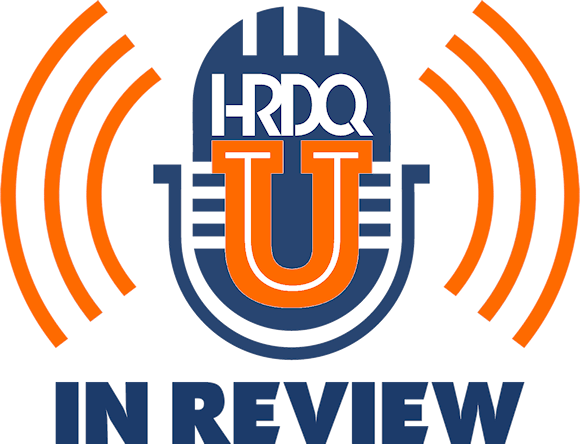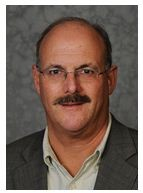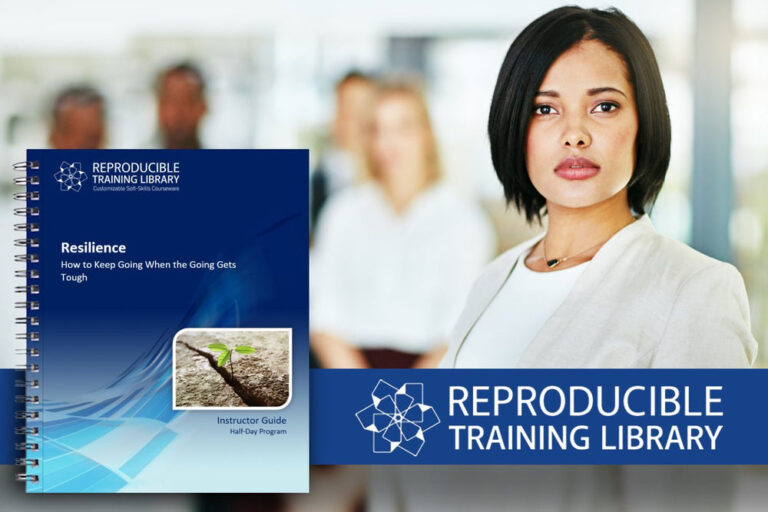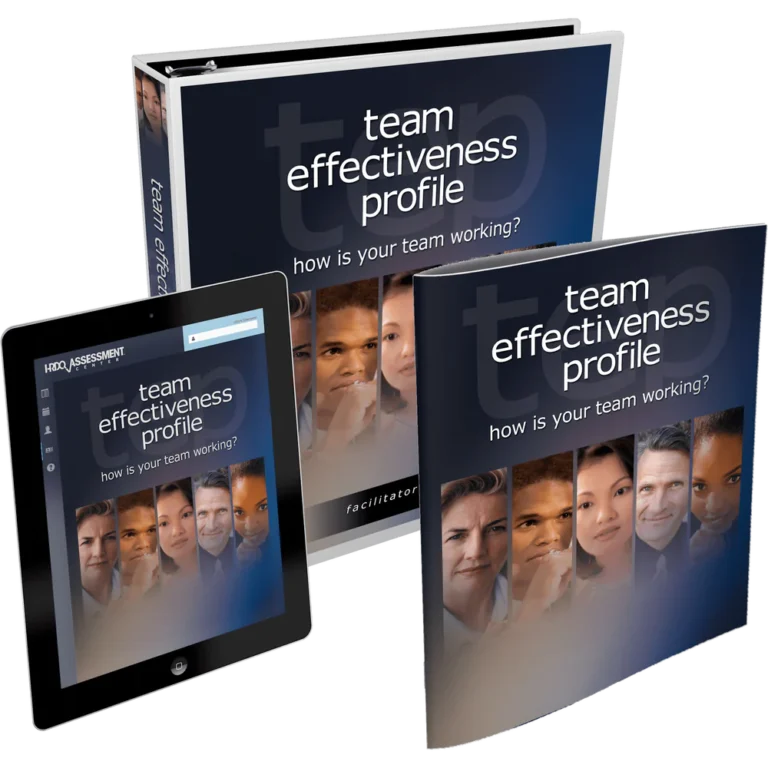

We’re joined by Peter Garber to explore his fascinating career journey and what led him to where he is today. Peter reflects on the most significant changes he’s seen in the L&D space and shares the projects and passions he’s focusing on in retirement.
We also dive into key insights from our recent webinar, 10 Natural Forces for Business Success. Peter explains the difference between natural forces of change and renewal, expands on his statement that “everything repeats itself in some manner if given enough time,” and shares why renewal is sometimes mistaken for a problem to be solved.
Finally, Peter unpacks the concept of reckless growth and its implications for organizations today.
Don’t miss this thought-provoking conversation with Peter Garber!
00:01
Welcome to this week’s episode of the HRDQ-U In Review podcast, where we bring you the latest insights and practical tools for enhancing soft skills training in your organization. This podcast is brought to you by HRDQU.com, and I am your host, Sarah, Learning Events Manager at HRDQ-U. Today, I Peter Garber joining me to discuss the webinar, 10 Natural Forces for Business Success. Peter, thanks so much for joining me today. Yes, thank you. Thank you for having me.
00:27
Now, Peter, you’ve been a guest here on the podcast in the past. We’ve done numerous of webinars together. But could you share a little bit for our new listeners about your career journey? What led you to where you are today? Yeah, I’m a retired HR professional. I worked for 35 years with a large corporation.
00:57
in HR roles. Looking back on my career, I spent the first half of my career in various HR roles at manufacturing facilities because the company I worked for was a major manufacturer. Across the US, moved around a lot before I progressed to a corporate position in the company’s headquarters.
01:21
You know, this gave me real life experiences to use in the corporate roles that I held because in those roles I was providing guidance to the people that were in the roles that I used to have at our manufacturing facilities. And so this gave me real life experiences to use, providing guidance and support to those people that were in the roles I used to be in. And this enabled me to provide practical support for those of us
01:49
supported and this was much better received than just imposing corporate policy all the time, which I could have done, but I tried to avoid doing that and tried to give them practical advice from my experience. And this also provided the basis for all of the books that I wrote. I’ve written, I wrote over 50 books on HR and business related topics during my career.
02:14
And one of those was the 10 natural forces for business success, which was the topic of our webinar the other day. And Peter, you said that you moved around a lot in your career. Do you have a favorite city that you resided in? Favorite city. You know, that would have to be in
02:42
Carlisle, Pennsylvania, not that far from, think, where you are. We really, my wife and I were both originally from Pennsylvania and having been in places like Minnesota and Illinois and North Carolina. We did like North Carolina quite a bit. We were even in California for a bit, but it really felt like home getting back to Carlisle, Pennsylvania. was a…
03:09
It was an excellent work environment and a great environment for us to start raising our family. My two girls were just young during those times. I’m sure. so Peter, reflecting on your experience, what are the most significant changes that you’ve seen in the L&D space over the years? Yeah, of course, I think the most significant changes that have occurred was all the new electronic tools that are available.
03:38
to L&D practitioners today, many of which weren’t available to me during my time as an L&D professional, which was the first role that I was in when I moved from the plants to corporate position. And later on, I had more of the advisory role that I described. But during my almost 20 years in the corporate facilities, my job required me to travel a great deal.
04:07
across the country to our facilities across the country. I think looking back on the tools that we have today, you know, a lot of that could have been done virtually. would have been less time and less time away from family and really less expenses than putting me on an airplane and sending me to across the country to visit locations when I could have probably done the same thing virtually with all the tools we have today.
04:36
You know, as we talked about in the webinar, I believe that everything is cyclical, meaning that old concepts are often recycled in new forms. And you and I talked about that a little bit before the webinar, because I’d asked you the question, what are the topics that other presenters of the webinars were, what were the most popular topics? And you told me they related to, I think it was leadership.
05:05
communications and teamwork and things like that, which didn’t surprise me because this fits the cyclical forces I believe exist as I discussed during the seminar when I was talking about renewal and saying that everything is cyclical and that cycles are really a force of their own. They could have been one of the 10, maybe the 11th natural force.
05:34
reinforces the old adage that there truly may not be anything new under the sun, or we see the same kind of concepts. I’m pleased that the topics that you told me are still popular because they’re so important. The leadership and communications and teamwork, those things just aren’t going to go out of style. And they’re always going to be important to any organization. Yeah, it’s like those core basic, you know,
06:05
skills that everybody will always continue to improve on. And especially now, as you mentioned, being able to do things virtually would have made things more simplistic back then. But with the surge of the booming of the internet, definitely, I think, probably impacts people’s ability to communicate and connect with each other. Yeah, the challenge, of course, is to put a new twist to it or see it presented in a different way or find a different aspect that
06:33
people may not have thought of before or presented in a unique format, which was something I was always striving to do in my writing and in my work in general. And so you mentioned you’re in your retirement now, but what projects or passions are you currently focusing on? Yeah, that’s an interesting question. I kind of appreciate you, or I do appreciate you asking that. You know, many people like me, when they retire,
07:03
you know, when you retire you have more time to think about your career, at least I did. And I don’t know if everybody does that. I know people that say, no, that’s the past, I don’t really think about it. But I doubt that’s really true. Reflecting on things, you know, that I wish, you know, maybe I had done differently or better during my career, I just, I think about those things. And for me, it’s not so much about the technical aspects of my job.
07:31
but rather how I manage the organizational politics of my career. And when I look back, I realize just how important that was and how I may have missed a lot of opportunities to manage that aspect of my career better. So I’m currently working on a new book on the topic of organizational savvy, which means how well one manages all the organizational policy aspects of their career.
08:02
and how skillfully they manage these challenges. Because when I look back on it, that’s probably as important, if not the most important thing in a career, is how well you do that. And I wouldn’t really give myself very high grades on how well I did that. And if I had another swing at the ball, I think I would have done it differently and hopefully better.
08:26
And no regrets. I had a great career. I had a wonderful career and no regrets. But I just think about how it could have been better. And I think that’s one aspect I could have managed better. And that’s why I want to, why I’m interested in this project, because I want to help others learn from what I learned over my 35 years of experience in HR. Yeah, you’ll have to let us know once this new book is published so that we can all check it out, because I’m sure everybody would love to hear, you know,
08:55
Reflecting is powerful and being able to say this is, you know, I did this then, but this is how I could improve this in the future. I think anybody would appreciate to be able to learn those last lessons. Yeah, that might be a future webinar topic. Yeah, absolutely. So look out for that. Yeah, yeah. recently did this webinar just this week on the 10 natural forces for business success. Can you share what the key takeaways were for our registrants at this event? Well,
09:24
You know, I was really pleased with the audience participation that we had. We had a number of surveys that we conducted throughout the webinar. I wasn’t particularly surprised with the responses in general, but I think that people did give us honest responses to some of the things that we asked. And one of the things that we asked, one of the first questions was about change, if you remember.
09:55
And it was a of a hierarchy of no, I don’t like change, do I love change? And I was surprised on how many, what percentages were at the higher levels of acceptance and receptivity to change. And I think that’s just so important. I think one of the, as I talked about during the webinar, being able to adapt to change is probably one of the most important skills.
10:23
that any person, any individual needs to learn during their career. And also organizations as well. Organizations have to be able to adapt to change too. And those that don’t probably aren’t going to survive the first natural force is because they don’t respond to change or don’t adapt to change well. So I think that was my key takeaway on that. I’m trying to think of the other.
10:52
The other one’s too. The other interesting survey question was, how do you, in what form do you want, you prefer to receive communications? And you’ll remember that, think, Sarah. And, you know, one of them was like podcasts and those kinds of electronic. But if I remember correctly, the majority said, I want to have communications live in person.
11:22
from my from and probably presumably from their supervisor. So again, that doesn’t go out of style. I mean, that was what employees told me 20 years ago is that because I would ask them, you know, how do you not ask them questions like that? And I said, I remember employees would tell me, you know, what I really would like is my supervisor to to tell me what’s going on because then I said why and that to be so we could have a dialogue so I could ask.
11:50
I can ask clarifications of what this means and things like that. you know, these things aren’t old fashioned. They’re just general things that will just always be true. They’re just the basis of working together and leadership, I think, as well, is being able to communicate that live face-to-face. Powerful force.
12:20
Can you talk a little bit about the difference between the natural forces of
12:27
Yeah, you know, they obviously have a lot of similarities and when you look at my 10 natural forces, there is a lot of overlap, of course. But the main difference between change and renewal is that change is a patient force and it moves at its own pace and it’s always occurring. And, you know, I had a visual of a waterfall, you know, and what that waterfall does to the environment around it, how it
12:56
you know, that environment and actually erodes that environment. And its job is to do that every minute of every day and change is the same way. Change is always working every minute of every day. And renewal is more periodic. It moves more in the cycles that I’m talking about. You know, it could be compared to the life cycle renewing itself, which is probably the most obvious of cycles in our lives.
13:24
And even products and services have life cycles which need to be understood, especially as they approach the end of their life cycles, and they need to be understood as such. And we may talk about that again.
13:38
And Peter, you made the statement that everything repeats itself in some manner if given enough time and if you pay attention to these trends. Can you elaborate on that for me? Yeah. You know, again, I’ve been I’ve been alluding to that during this this session, this podcast, and also during the webinar. You know, a simple example, maybe the most obvious example is found in fashions. know, everything is cyclical and styles that were
14:08
popular 20, 30, 40 years ago are coming back in style now, like wide-leg jeans and bell bottoms. My wife recently bought a pair of bell-bottom jeans. I said, wow, we used to wear those in the 70s when we were in college together. And so things do obviously repeat themselves. If you wait long enough, almost everything comes back in style. And if you look at many other discoveries, they may actually
14:36
simply be updated versions of older ideas or concepts. Like social media is an updated version of magazines and newspapers. When I grew up, that’s how we received our information. I always tell my kids, you know, that we only had three channels on our TV where I grew up and they say, no, you know, that’s how could you only have three channels? But that’s all that we have.
15:00
But social media is an updated version of magazines and newspapers. hear, know, magazines and newspapers today are, you know, many of them are struggling to survive with the competition of the social media. TV streaming services are an updated version of movie theaters and TV cable services. The basic concepts are the same, just updated.
15:27
You know, again, the old adage is there’s nothing new under the sun may actually be true. And during the webinar, you made a comment about renewal may not always be recognized by everyone, but thought to be something else like a problem to be solved. Can you elaborate on what you meant by that? Yes. An example would be a product losing sales because it’s actually at the end of its life cycle. And this might be thought of as a problem
15:57
is the problem, the solution may be thought of as the problems they might have with other products that aren’t at the end of their life cycle, but may need some kind of remedy such as, you know, add more advertising or packaging or marketing to, you know, different types of groups. But if the root cause of the problem is really that it’s at the end of its life cycle.
16:24
And products can be at the end of their life cycle and you’ll see the sales dropping off. All the advertising dollars and market focus and all that won’t help the situation because they’re not addressing the real problem. And so that’s it’s important to recognize that as such. And when a product reaches the end of its life cycle, it either needs to be updated, renewed, or discontinued.
16:50
And that can be a tough thing to do for many organizations because, you know, they may have, and their life cycle could be very long and it could have been a very long life cycle that they’re just so used to having and all of a sudden they’re going to have to adjust to this cycle, this product ending, getting to the end of its life cycle and really becoming obsolete. So you really need to, you know, either update it, renew it or make it obsolete.
17:19
and come up with something new. And what about reckless growth? Can you share an example?
17:27
Yeah, I mean, that might sound like an oxymoron. How could growth be reckless? But we see many examples in the news about mergers or acquisitions that aren’t successful financially and weigh down the entire organization. And the news is full of reports of companies becoming bankrupt because of a poor merger decision or acquisition.
17:52
that end up really financially draining their other resources and eventually causing them to possibly go out of business. Again, that’s why I emphasized during the webinar that these decisions should be based on experience and knowledge. And I’m sure that most companies do research and give a lot of thought to what would be a good acquisition, but sometimes
18:21
As I talked about, when companies get in a survival mode, when their survival is threatened by some kind of a change event that I described, they might have a response that is fast and maybe a bit of a knee-jerk reaction that says, we need to get bigger. Our problem is that we’re not big enough or we’re not in the right markets and things like that. It may act in haste before…
18:49
They’ve really, you know, considered all the different variables that this decision might have. I, that to me, that’s a, that’s an excellent example of what reckless growth would represent. And it’s just amazing how often, you know, you see that happen and it happens all the time. And, and this is something that just companies obviously need to be very, very aware of. And I think they are, but it still happens.
19:19
And lastly, Peter, where can listeners go to learn?
19:26
Yeah, one place would be to contact me directly at prgarber, G-A-R-B-E-R, my last name, 2110 at yahoo.com or the HRDQ website. And can you share that for our audience? Yes, we will have the webinar from this event connected linked below, so you’ll able to check that out.
19:55
library of events that we have completed with Peter over the years as well on different webinar topics that he has presented so you’ll be able to check that out as well too. Great, thank you. Well thank you Peter for your time today. Thank you for having me and look forward to working together in the future.
20:19
Yes. And we hope you enjoy listening to the HRDQ-U In Review podcast available on all major streaming platforms. If you did enjoy today’s episode, make sure to give us a follow and leave us a five-star review. Thank you all for tuning into this week’s episode of the HRDQ-U In Review Podcast brought to you by HRDQU.com.
20:29
And we hope you enjoy listening to the HRDQ-U In Review podcast available on all major streaming platforms. If you did enjoy today’s episode, make sure to give us a follow and leave us a five-star review. That’s how we’re able to continue to produce this weekly free content for you. And thank you all for tuning into this week’s episode of the HRDQ-U In Review Podcast brought to you by HRDQU.com.


Listen to this podcast event at no charge with your
HRDQ-U Free Access Membership
We’re joined by Peter Garber to explore his fascinating career journey and what led him to where he is today. Peter reflects on the most significant changes he’s seen in the L&D space and shares the projects and passions he’s focusing on in retirement.
We also dive into key insights from our recent webinar, 10 Natural Forces for Business Success. Peter explains the difference between natural forces of change and renewal, expands on his statement that “everything repeats itself in some manner if given enough time,” and shares why renewal is sometimes mistaken for a problem to be solved.
Finally, Peter unpacks the concept of reckless growth and its implications for organizations today.
Don’t miss this thought-provoking conversation with Peter Garber!
[ PODCAST PLAYBACK ]
You must be signed-in with your membership account to access this content.
Enjoyed this podcast? Have suggestions on how we can improve? Please take our quick survey and receive a coupon for 15% OFF any of our individual membership plans.

*Instant 15% coupon available upon completion of survey.
Want to learn more? Become an Individual or Corporate member to watch this and hundreds more webinars!
Discover the 10 Natural Forces for business success and learn how to harness their power to propel your organization toward its goals.

Peter R. Garber
Peter R. Garber is a retired Human Resource Professional with over 35 years of experience working for a Fortune 200 corporation. He held a variety of HR roles, including assignments at manufacturing facilities across the country, and later spent twenty years at the company’s corporate headquarters. He is the author of over 50 books and learning activities on HR and business-related topics. He has been invited to present seminars and webinars on numerous occasions based on his books and has made presentations at international conferences and colleges. Mr. Garber was also an adjunct instructor at the University of Pittsburgh Business School. He has also presented a number of HRDQ-U webinars.
During his career, Mr. Garber observed just how important these natural forces were in both his and other organizations and the impact they had on their success in business and began writing on this subject. As a result, he is the author of the book 10 Natural Forces for Business Success and has presented numerous seminars and presentations on this subject.

Training Tools for Developing Great People Skills
This event is sponsored by HRDQ. For 45 years HRDQ has provided research-based, off-the-shelf soft-skills training resources for classroom, virtual, and online training. From assessments and workshops to experiential hands-on games, HRDQ helps organizations improve performance, increase job satisfaction, and more.

Resilience Customizable Courseware
Develop the skills to manage workplace changes, identify stressors, eliminate self-deprecating thoughts, and establish effective communication structures to handle daily challenges, improve relationships, and achieve happiness at work.
Buy at HRDQstore.com
Team Effectiveness Profile
Often, obstacles to a group’s effectiveness are not immediately visible, but these hidden issues can sap energy and hinder progress. Team Effectiveness Profile helps groups systematically uncover and address these challenges – don’t let hidden issues drain your group’s energy.
Buy at HRDQstore.comThe HRDQ-U In Review Podcast, brought to you by HRDQU.com, brings you the latest insights and practical tools for enhancing soft-skills training in your organization. As a learning community for trainers, coaches, consultants, managers, and anyone passionate about performance improvement, we interview subject matter experts and thought leaders from recent webinars they presented with us to take a deeper dive into the content they shared and answer all your questions. Join us as we explore new ideas and industry trends, share success stories, and discuss challenges faced by professionals.
The HRDQ-U In Review Podcast is intended for HR and training professionals, organizational development practitioners, and anyone interested in improving workplace performance and productivity.
New episodes of HRDQ-U In Review are released every week.
The length of the episodes varies, but they typically range from 15-30 minutes.
The podcast covers a wide range of topics related to HR and organizational development, including leadership development, team building, communication skills, conflict resolution, employee engagement, and more.
No, HRDQ-U In Review is completely free to listen to.
You can listen to any available HRDQ-U In Review Podcast right on our website at HRDQU.com via our embedded Spotify player on the related webinar page. In addition to our self-hosted option, you can find the HRDQ-U In Review Podcast on many of the popular streaming services, which are listed above.